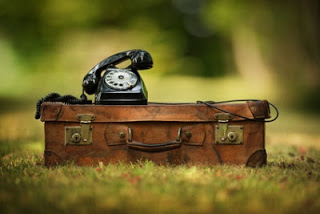A few weeks ago, I entered my neighbourhood café in Athens, laptop in hand, intending to take advantage of an hour free of household-related distractions (lovingly loud
Greek family, adoringly attached toddler) to do some work. The place was full, so I asked an elderly gentleman if I could join him. He was sitting on the couch at the corner, not knowing that it was my favourite spot. He smiled warmly, invitingly. “Of course, please sit down. I just got here as well.” He stood up to go get his coffee from the counter, but his hands were shaking and, on his way back, he spilled a little on the lady who was sitting at the table next to us. He apologized profusely. He was visibly embarrassed. “That’s what happens when you get old…” The lady was really nice about it. “It could happen to anyone,” she said kindly and gave him a big smile. She saw me watching and smiled at me too.
Soon after he sat down, a friend of his entered the café. I guessed that they probably met there every morning because they didn’t look surprised to see each other. Instead of a
greeting, the newcomer started reciting a passage from Plato’s “Republic,” something about the blessing of celibacy in old age. It was meant to be funny and they both laughed. Very naturally, as if they were continuing an unfinished conversation, they started talking about politics, the state of the economy, the state of their country, switching back and forth between the present and “the old days…” Occasionally, they threw in a passage from some Greek literary work or a quote from a historical figure to illustrate how it’s all linked, the then and the now. At some point, this being Greece, there was a brief, light-hearted argument about who would pay for the coffees (“You invited
me last time, now it’s my turn” “No, it was you who invited me! You’re becoming forgetful in your old age”), coming to a peaceful conclusion (“Well, I’ll let you invite me, but only if you agree to officially adopt me”).
I found the whole scene so extraordinarily charming, that I’d forgotten about my work. I was captivated, absorbed by their conversation. A few times I couldn’t help but smile and as they noticed, they smiled back timidly, apologetically, with an almost paternal “So sorry to distract you from your work, my girl;” or “I apologise for my friend. He talks
way too much.”
Eventually, they had to leave because their grandchildren were waiting for them to take them to the playground “now that the weather has warmed up” (it was already 20 degrees Celsius that morning, but for Greek standards not warm enough for children to be out and about).
I wished they’d stay. I felt an unexpected connection with these elderly men. I appreciated where they were coming from. I got their stories. The way they talked and behaved – with dignity, respect, affection – resonated with me. Their words, infused with a sense of rootedness and history spoke to me. I felt that we shared the same values; that their stories were my stories, their roots my roots.
I realised later that I felt more connected to those representatives of another generation than to any of my own. Maybe it was because their stories showed me where
I come from – my life’s trajectory, that of my parents. They knew my story because they are my story. Maybe the older I become, the more interested I am in that aspect of my identity.
I suspect that I managed to hold on to that connection because I left Greece. My link was not eroded by the everyday. I was not disillusioned by current events. I did not rebel or disengage, like young people my age have. Surprisingly, I think that for the same reason – because I left – I am not as connected to my own generation. We haven’t shared the milestones, the victories, the frustrations, the hopes or the disappointments. We don’t share a present or a future. I wasn’t there and, most likely, I won’t be there. As sad as that makes me sometimes, I know that I can always look to the past and find a sense of belonging. Is this just me or are there more who have felt this way?










